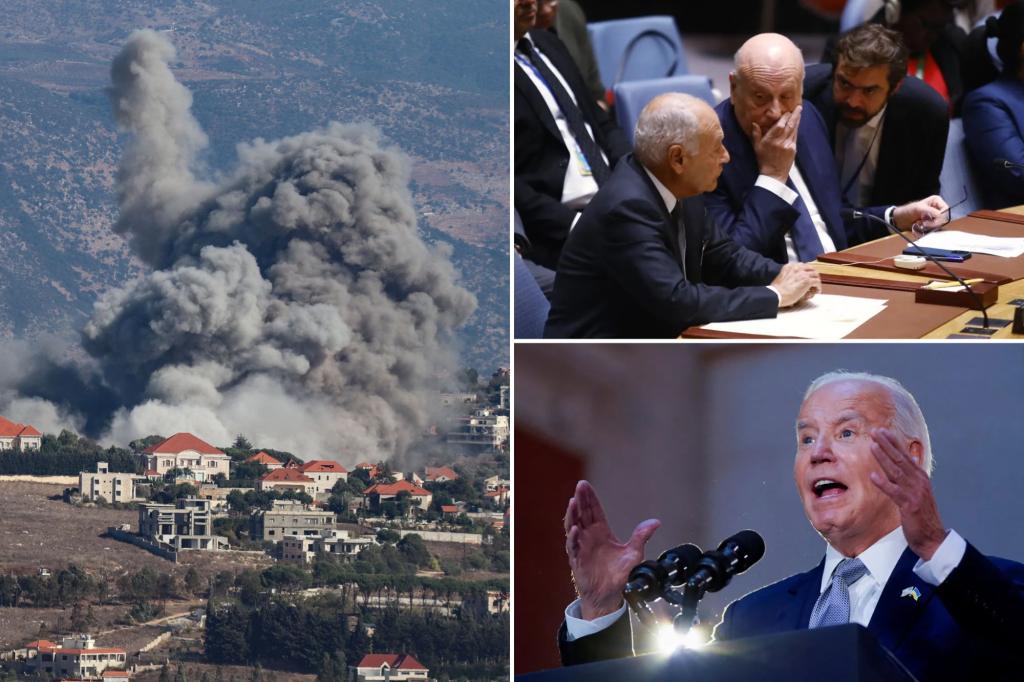The United States and several allies have called for an immediate 21-day cease-fire between Israel and Hezbollah terrorists in Lebanon. The joint statement released by the US, Australia, Canada, European Union, France, Germany, Italy, Japan, Saudi Arabia, United Arab Emirates, the United Kingdom, and Qatar emphasized the need to end the escalating conflict to prevent a broader regional escalation. The parties involved argued that diplomacy cannot succeed amidst the ongoing conflict and called for a cease-fire to allow for space for diplomacy towards a diplomatic settlement.
The call for a cease-fire comes after a massive bombing campaign in Lebanon that has resulted in over 600 deaths, including top Hezbollah commanders. These attacks are considered the deadliest in nearly two decades and have raised concerns about the possibility of all-out war between Israel and Lebanon. The governments of Israel and Lebanon, as well as the Iranian-backed terror group Hezbollah, did not immediately react to the cease-fire call. However, senior US officials indicated that all parties were aware of the proposal, with expectations that Israeli Prime Minister Benjamin Netanyahu may address it in his upcoming speech at the United Nations General Assembly.
Tens of thousands of people have already fled southern Lebanon and northern Israel due to the ongoing missile exchanges between the two sides. Israeli officials have previously suggested that a cease-fire could be reached if Hezbollah agrees to stop firing first. However, Hezbollah has stated its intention to continue attacks in solidarity with Hamas, following a terror attack on Israel by Hamas that led to numerous casualties. The group has vowed revenge for the attack, which killed nearly 40 people and wounded over 3,000 others.
The call for a cease-fire is aimed at creating a safe environment for civilians on both sides of the border to return to their homes. It is seen as a crucial step towards de-escalating the conflict and preventing further loss of life. The involvement of multiple countries and international bodies underscores the seriousness of the situation and the need for urgent action to prevent a wider regional crisis. The statement acknowledges the complexity of the conflict and the challenges of diplomacy but stresses the importance of taking immediate steps to halt the violence and work towards a diplomatic settlement.
The proposal for a 21-day cease-fire is intended to provide a window of opportunity for diplomatic efforts to take place. The move reflects a coordinated international response to the escalating conflict and shows a united front in calling for an end to the violence. The involvement of powerful countries and regional allies adds weight to the call for a cease-fire and increases the pressure on the parties involved to consider diplomatic solutions. The expectation is that all parties will consider the proposal and work towards a peaceful resolution to the conflict for the benefit of the people of both Lebanon and Israel.
The situation in the region is considered intolerable and poses a significant risk of further escalation. The call for a cease-fire emphasizes the need for a diplomatic solution to end the conflict and ensure the safety of civilians on both sides. The urgency of the situation is highlighted by the high number of casualties and the potential for a wider regional crisis. The statement represents a concerted effort by the international community to address the conflict and pave the way for a peaceful resolution. It remains to be seen how the parties involved will respond to the cease-fire call and whether it will lead to a lasting peace in the region.


